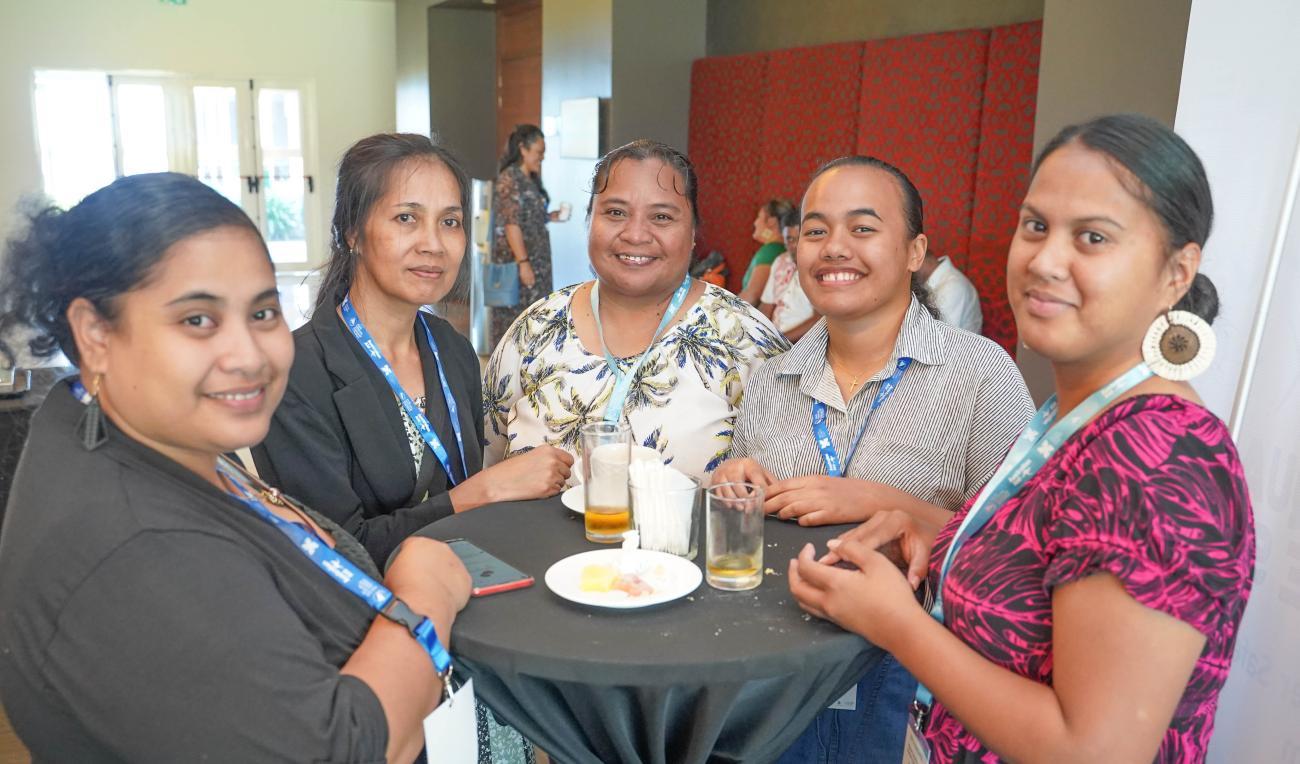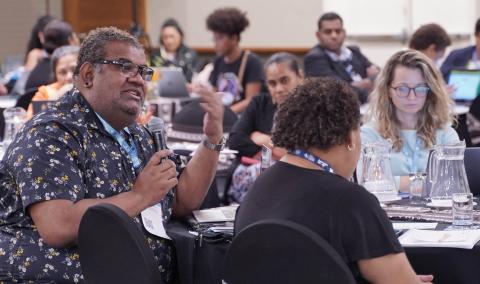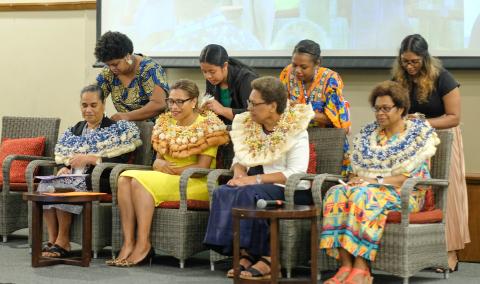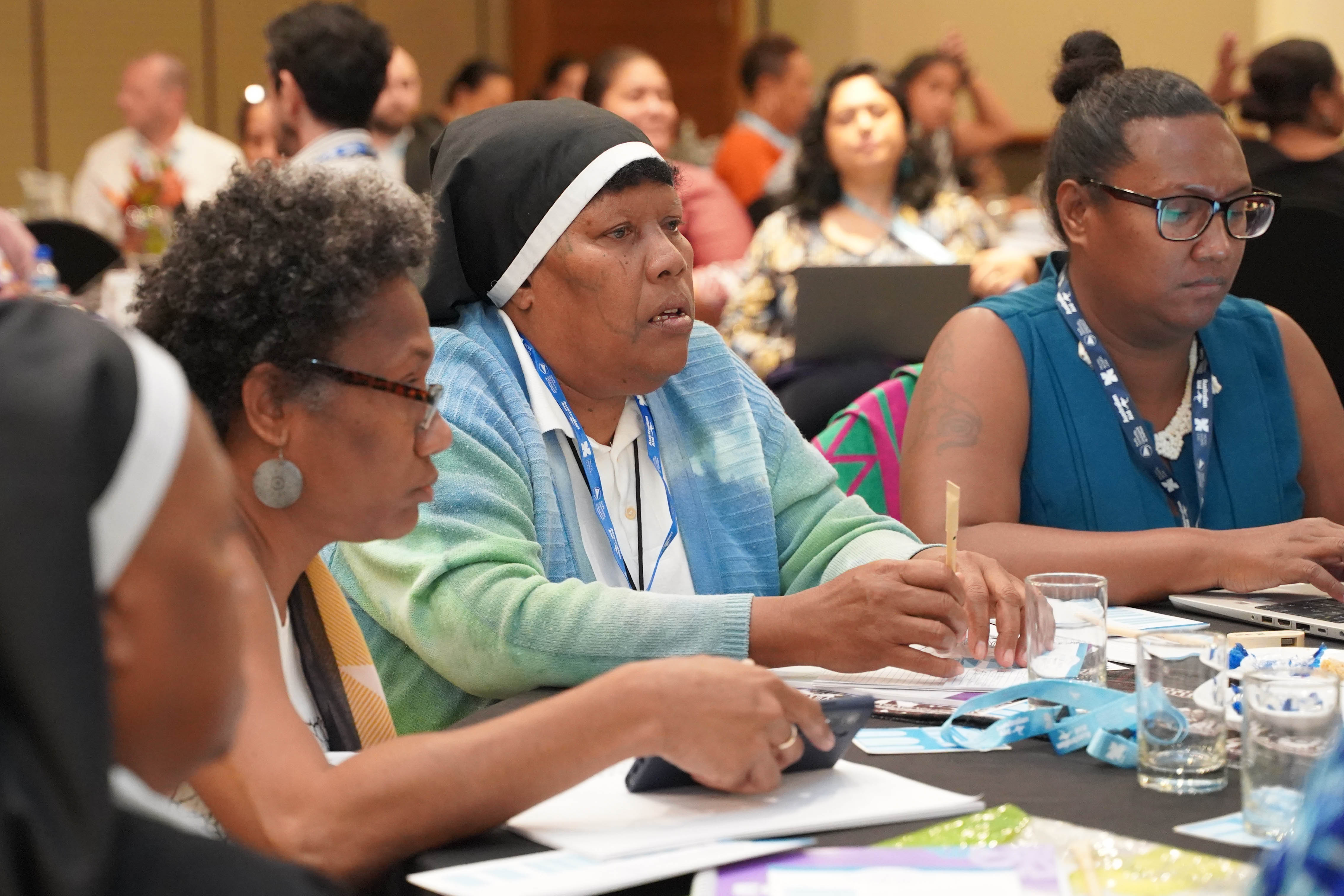
A 28-year-old woman living in a village in remote Solomon Islands had her husband spitefully share her intimate photos, resulting in the family accusing her of being irresponsible and taking away her only child. Through the local crisis centre, she eventually had her child returned, but the husband was never accused of his actions, from using control and coercion to force his wife to share nude photos to committing image-based abuse.
This is one of many stories shared recently by Pacific Islanders about the growing issue of Technology-Facilitated Gender-Based Violence.
To better address this issue, the first Pacific-led Priorities Document to help guide future Technology-Facilitated Gender-Based Violence has been developed and published online to help guide the work in the region.
Technology-Facilitated Gender-Based Violence (TFGBV), including online abuse, is endemic in the Pacific Islands, primarily perpetrated through technology such as smartphones with abusive text messaging, image-based abuse through social media, or controlling a person’s access to their phone.
The issue of Gender-Based Violence (GBV) is being exacerbated through perpetrators’ use of technology, including social media, phones and other devices, spyware, secret cameras, location tracking systems in cars, and more.
Gender-based violence has long been an issue in the Pacific, which has the world’s highest rates of violence against women, such as in Fiji, where 64 per cent of women experienced physical or sexual violence by a husband or other intimate partner - twice the global average.
Some studies put the global prevalence of online violence against women at a staggering 85 per cent.
The TFGBV Priorities Document was developed by participants at the three-day ‘Safe and Equal Online Spaces – Pacific Cyber Safety Symposium’, hosted in Fiji in late 2023. The event document is the first step to clarifying key Pacific issues and priorities for TFGBV, which may guide future work and inform regional commitments or policies.

At the symposium, more than 45 speakers and panellists shared frontline stories of TFGBV in their community, contributing to the event’s TFGBV Priorities Document. The symposium focussed on the Pacific-led ‘talanoa’ storytelling approach to gather information and establish a better understanding of TFGBV prevalence, given a lack of Pacific-specific TFGBV research and data.
More than 130 participants attended the event from 10 crisis centres, 14 Pacific countries’ ministries for women or technology, and others currently working with TFGBV - ranging from people with disabilities to adolescent girls taking the stage to tell their stories and share Pacific-specific insights.
The region’s first TFGBV symposium - and possibly the first regional TFGBV forum held globally - was convened by SPC through the Pacific Women Lead at the Pacific Community (PWL at SPC) programme in partnership with Australia’s eSafety Commissioner. SPC collaborated with Council of Regional Organisations in the Pacific (CROP) partners including: the University of the South Pacific (USP) as Chair of the CROP ICT Working Group; and Pacific Islands Forum Secretariat (PIFS) as lead of the 2050 Strategy for the Blue Pacific Continent.
The resulting TFGBV Priorities Document clarifies priorities by country and region. The five key regional priorities agreed by participants are: research and data that is Pacific specific; improving legislation, regulations, policies and commitments to include TFGBV; education and training; awareness raising and public information, and improving coordination at all levels and across country, multi-country and regional approaches to better address TFGBV.
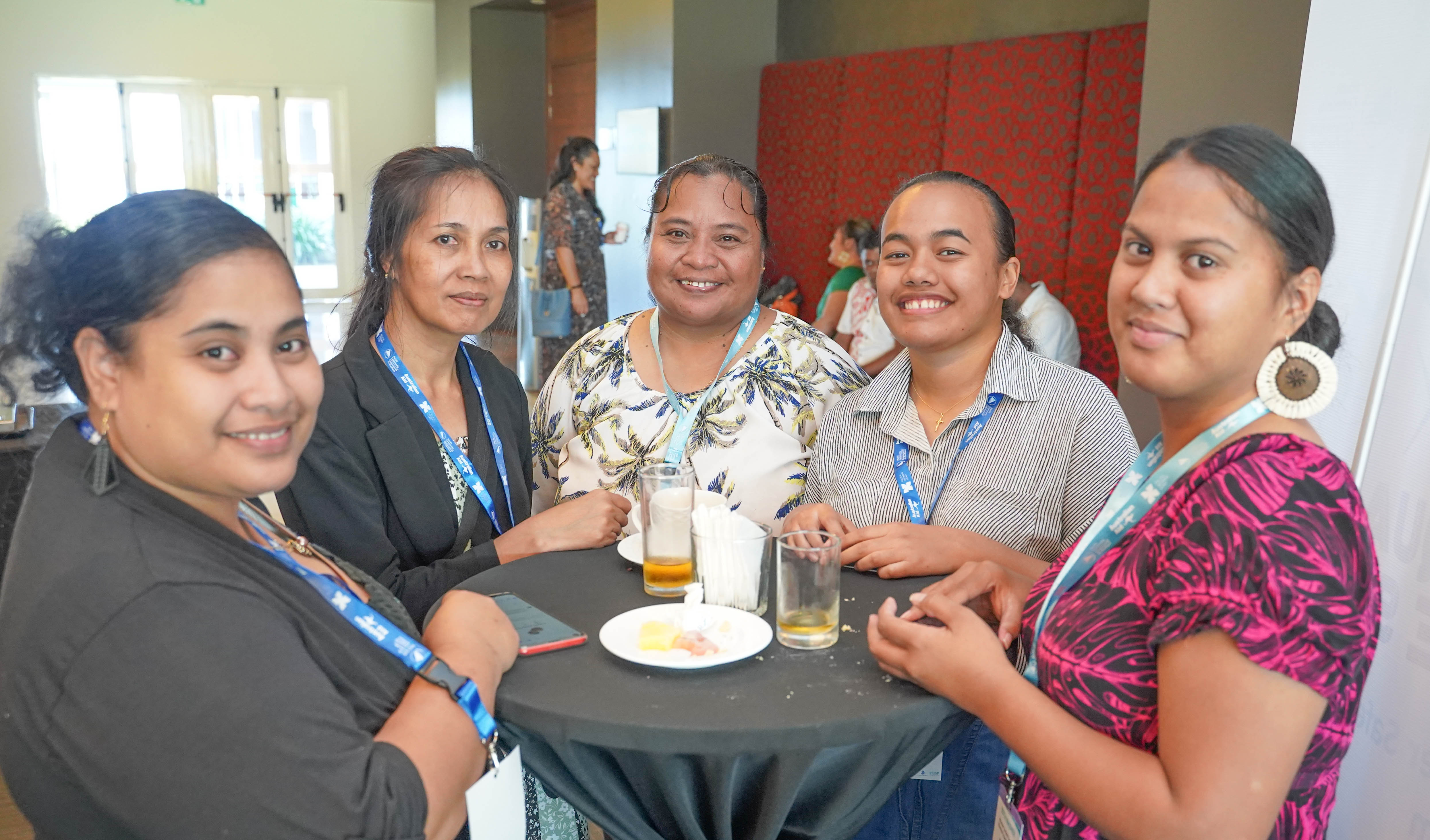
During the event, Solomon Islands’ delegation arranged for the new TFGBV Training for Frontline Workers in the Pacific to be delivered in-country within two months, with Fiji following in December 2023. TAustralia’s eSafety Commissioner, a key partner for the TFGBV symposium, launched the pilot training during the symposium week.
Other symposium participants benefit this year with eSafety’s pilot training rolling out to Tonga, which includes discussions about the TFGBV Priorities Document.
Plans are underway to extend the frontline training to include the development of a new TFGBV Training of Trainers (ToT), with discussions around progressing the TFGBV Priorities Document, which is now integrated into eSafety’s training.
At the symposium, of the 122 participants surveyed, 99 per cent confirmed that by the end, they understood the key priorities to address TFGBV’ in the Pacific.
“As a result of the symposium, government agencies, CSO and other relevant service providers responding to GBV are able to see the gaps in addressing TFGBV and are ready to convene to address TFGBV moving forward.”, survey participant.
All participants are now part of an online TFGBV group managed by SPC, sharing research and information while also participating in two webinars since the symposium was held in late 2023, with more webinars and follow-up activities planned for 2024 for the group to progress key issues and ideas in the Priorities Document.
For more details about the symposium and to view the Priorities Document, visit: https://bit.ly/44tDkgC
